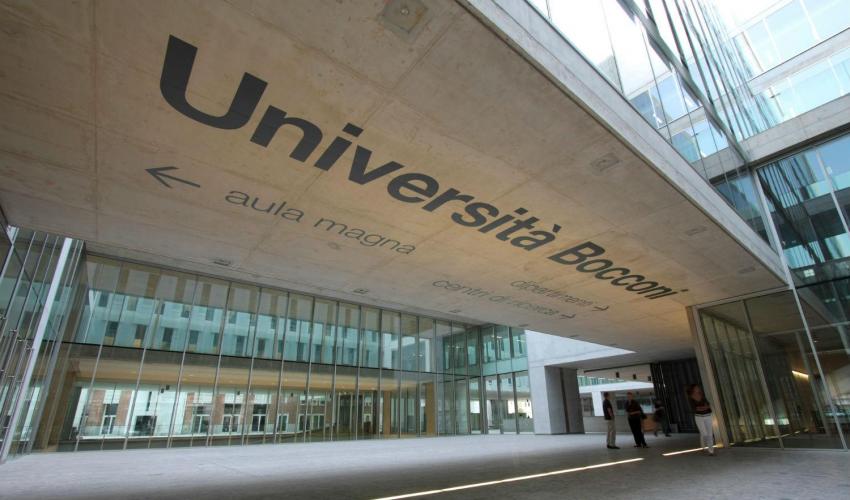
Research That Lasts: Botticini, Colla and Tabellini Awarded for Research Impact
A BOOK ABOUT THE ROLE OF EDUCATION IN JEWISH HISTORY, AN ARTICLE ON FINANCING CONSTRAINTS AFTER THE 20072009 CRISIS AND A PAPER ON CULTURAL VALUES AND ECONOMIC DEVELOPMENT EARNED THEIR AUTHORS THE BOCCONI ACKNOWLEDGMENTMaristella Botticini (Department of Economics, IGIER's Director), Paolo Colla (Department of Finance) and Guido Tabellini (Department of Economics, Intesa Sanpaolo Chair in Political Economics) are the recipients of Bocconi’s 2016 Awards for Research Impact.
“Time can be the most rigorous judge also for research works. Some research is continuously read and cited and has a major impact”, Vice-Rector for Research Eliana La Ferrara says. “We have decided to acknowledge this research in order to stimulate the production of research that is more and more relevant both to the scientific community and society”. Eligible works had to be published between 7 and 3 years ago and have been rated based on citations and impact on the public debate and in policymaking.
Maristella Botticini has been awarded for The Chosen Few. How Education Shaped Jewish History, 70-1492, a book co-authored with Zvi Eckstein and published by Princeton University Press in 2012. “The book analyzes a vast amount of historical evidence through the lens of economic theory to explain the transformation of Jewish life during 70-1492”, the Research Committee wrote in their motivation. “It asks three key questions: (i) Why are so many Jews urban dwellers rather than farmers? (ii) Why are Jews primarily engaged in trade, commerce, entrepreneurial activities, finance, law, medicine, and scholarship? and (iii) Why have the Jewish people experienced such a long diaspora? While the existing literature stresses regulations and persecutions, the book offers a novel explanation. Starting from a prescription that required fathers to send their sons to school to study the Torah, the key message of The Chosen Few is that the literacy of the Jewish people, coupled with a set of contract-enforcement institutions, gave the Jews a comparative advantage in occupations that benefited from literacy, contract-enforcement and networking and provided high earnings. The book was published by Princeton University Press and translated into seven languages. Its impact on scholarship is also witnessed by the award of prestigious book prizes”.
Which Financial Frictions? Parsing the Evidence from the Financial Crisis of 2007 to 2009 (with Tobias Adrian and Hyun Song Shin), an article published in 2012 in NBER Macroeconomics Annual, earned Paolo Colla his award. “The question asked in this paper concerns the kind of constraints to financing implied by the financial crisis”, the motivation explains. “A commonly held idea is that the crisis constrained financing due the reduction in bank lending. However all along the crisis, and in particular in its second part, a considerable increase in bond lending has been observed. The paper examines this and other relevant sources of “frictions” in financing and concludes that the channel through which financing may have been constrained is not that of less overall financing: bonds acted as a substitute of bank lending indeed, but through a spike in the risk premium. This result has obvious relevant interpretive and policy implications. Accordingly the paper has had a relevant impact not only in the academic milieu (as can be gauged by the number and quality of references and its introduction as required reading in PhD programs), but also from the policy point of view, as testified by its quotation in speeches by officials in the ECB, the NY FED and the Chilean Central Bank”.
Guido Tabellini obtained his award for Culture and Institutions: Economic Development in the Regions of Europe, an article published in 2010 in the Journal of the European Economic Association. “The paper is written within the tradition of institutional economics”, the Committee wrote, “and it represents a very thorough analysis of economic development in the regions of Europe. The author employs an instrumental variables strategy to tease out the effects of culture. He finds that the level of trust and respect, as well as the level of control one feels on one’s life, are cultural values that over time influence economic development and growth directly or indirectly through the functioning of formal institutions. Compared to previous research that had mainly focused on the role of formal institutions, Tabellini’s paper shows that culture is a complementary explanation for economic development. This paper has been a precursor of a large body of research, which is also reflected in the extremely high number of citations (as of today more than 1,200 Google Scholar citations). The significant role of cultural traits for explaining economic performance calls for more attention to these aspects when formulating economic policies”.
by Fabio Todesco
